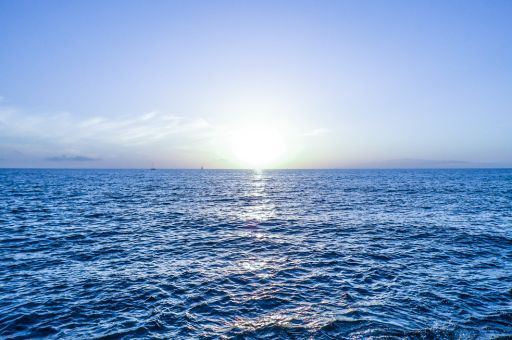The Ministry of Agriculture, Fisheries and the Natural Environment today commemorated the 25th anniversary of the creation of the Freus de Ibiza and Formentera Marine Reserve at a ceremony held at the headquarters of the Consell d’Eivissa.
TDB keeps you informed. Follow us on Facebook, Twitter and Instagram
Antoni Grau
On 8 June 1999 Decree 63/1999, of 28 May, was published in the Official Gazette of the Balearic Islands, establishing the Marine Reserve of the Freus of Ibiza and Formentera, the first of the Balearic Islands. To celebrate the 25th anniversary of this event, a commemorative ceremony was held today at the headquarters of the Consell d’Eivissa, which was attended by various people and institutions that have been part of this process. During the event, during which a video was shown to commemorate these 25 years, the Government’s Director General of Fisheries, Antoni Grau, took the opportunity to thank all those involved in the sector for “their contribution and commitment to continue protecting and conserving the marine resources of the Balearic Islands for the next 25 years and many more”.
Grau stressed that this commemoration, as well as the creation of the rest of the marine reserves, signifies “a success story, a success of the Balearic Islands’ capacity for self-government and of the islanders’ solid relationship of esteem for the sea and natural marine resources”. In this sense, he also stressed that “in the Balearic Islands, marine reserves have proven to be an important fisheries management tool for recovering commercial fish stocks, conserving natural habitats and helping professional fishing for small gears”. “With the creation of the Freus marine reserve, a process began that those of us who started it could never have imagined it would achieve the scale it has acquired over time,” said the director general of fisheries.
The commemorative event was also attended by the president of the Consell d’Eivissa, Vicent Marí, who gave the welcoming speech; the councillor of Social Welfare of Formentera, Maria Cristina Costa Juan, and the island’s director of Rural and Marine Environment of Ibiza, Joan Marí. Also present were various representatives of institutions and entities related to the fishing sector and environmental protection.
It should be remembered that today, and after 25 years, the Balearic Islands have a total of 12 marine reserves which, with a total surface area of 67,420.53 hectares, cover 22% of the inland waters under the Government’s jurisdiction and represent more than half of the reserves in Spain as a whole. “In fact, if there are not more marine reserves in the Balearic Islands, it is because most of the initiatives that have been proposed in external waters, which are the responsibility of the state, have not materialised,” Grau pointed out. Specifically, the Freus Marine Reserve is, after the Migjorn de Mallorca, the second largest in the Balearic Islands. In total, it has 15,353 protected marine hectares, of which 442 are a special protection area (integral reserve) and 2,890 are closed to recreational fishing.
During his speech, Grau said that the success of marine reserves is based, above all, on adaptive management based on three fundamental pillars: effective surveillance, regular monitoring of commercial fish stocks and frequent communication with the sector through monitoring commissions and permanent contact with staff on the ground. “In marine reserves, there are more fish, they are bigger and there are many species that are difficult to find outside them. As a result, the catches are better and of higher economic value, which is why they are now essential for the survival of the small-scale fishing fleet.
Marine reserves have also become an important element in the development of underwater tourism, a fish-friendly form of economic exploitation, which has found within the reserves the ideal environment in which to grow. In 2023, around 72,000 dives were made in the marine reserves of the Balearic archipelago. In addition to the network of reserves, the Balearic Islands have the Cabrera Archipelago Maritime-Terrestrial National Park, with more than 80,000 marine hectares, and a whole series of special protection figures, in particular the Natura 2000 Network, which give shape to a coverage of protected marine areas unparalleled in the western Mediterranean, as they occupy more than 40% of the coastal waters of the archipelago.
Currently, Law 6/2013, on sea fishing in the Balearic Islands, defines marine reserves as areas where the exploitation of living marine resources is limited in order to increase repopulation and encourage the proliferation of species subject to exploitation or to protect ecosystems with differentiated ecological characteristics. This definition is based on the principle of ecosystemic management, which translates into the fact that it is not possible to have fishery resources in good condition if the environment they need to develop is not in good condition. This fact empowers the government to regulate any activity that may affect living marine resources and, necessarily, all actions involving the extraction of marine flora or fauna and underwater activities.
